Serie A
More than the mafia: Winning Serie A helped Napoli show the city's true colors
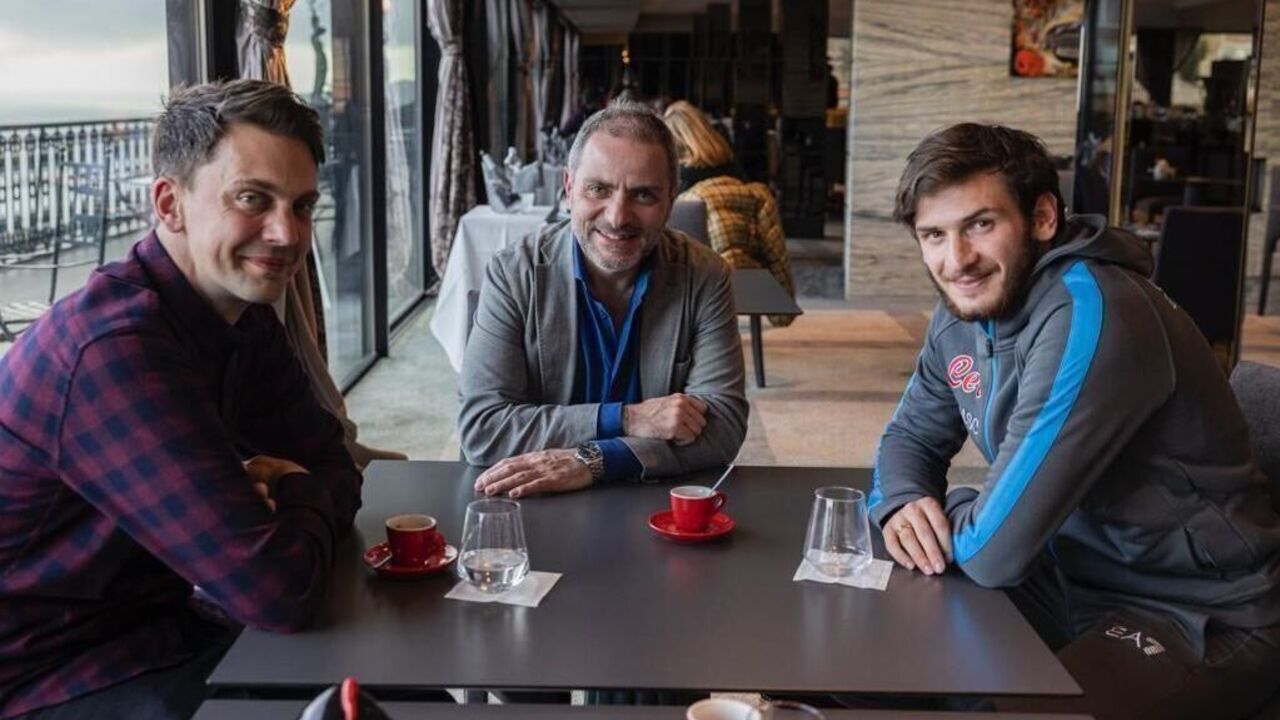
Every time Michelangelo Iossa walked out onto the streets of Naples with his 15-year-old son, they’d find a clue that the biggest celebration in decades was in the works.
Iossa, a local journalist and reporter for Corriere della Sera, one of Italy’s oldest newspapers, was 15 himself when Serie A club Napoli won the first of their only three Italian championships. His son Luigi always asked him what it was like back then when Diego Maradona, the rebellious Argentine playmaker, led the team to titles in 1987 and 1990.
With every makeshift altar, every candle lit for Maradona, and every flag draped over a balcony, Luigi could finally understand what winning does to this tribal metropolis.
“I always said, ‘Luigi, when we win the Scudetto, you will see the greatest celebration possible,'” Iossa recalled in an interview with theScore. “It’s more than a world championship, it’s more than a European championship. It’s like the Carnival in Rio de Janeiro or the Dia de Muertos in Mexico City.”
The three million people who reside in and around this working-class city had lots of time to prepare. Daniele “Decibel” Bellini said the usually superstitious Neapolitans allowed themselves to start celebrating as early as January.
“When you win 5-1 at home (against 36-time champions Juventus) in January and you beat them again in Torino (in April), you know who you are,” Bellini, Napoli’s famous stadium announcer of 15 years, told theScore. “You know you are the best team in the championship. Maybe in that moment the people began to understand who we are and how much energy we have.”
By March, Napoli were leading Serie A by 15 points. Two months later, they were champions.
It wasn’t supposed to be this easy. People half a world away weren’t supposed to care.
Born out of a dying dream
Napoli had come close in previous years. In 2017-18, under then-manager Maurizio Sarri, considered by many as the architect of the club’s recent success, the team earned 91 points, enough in most seasons to win the Scudetto.
Except that year, Juventus went ahead and posted an astonishing 95 to clinch another title.
But being competitive was an achievement in and of itself for a club that had gone bankrupt as recently as 2004 with unpaid debts as high as €70 million. Napoli had to start over again in the third division, just one above the amateur ranks. Though the team continued to draw crowds of more than 50,000, its existence was irrelevant to almost everyone outside the city limits.
“At that point, to watch Napoli, you’d have to go on this website, and you wouldn’t even watch the game. You’d watch the commentators watch the game and see how they’d react,” Carmine Guadagno, co-founder of Napoli Club Toronto, told theScore.
Film producer Aurelio De Laurentiis saved Napoli when few, if any, investors would drop as much money as he did on a defunct institution without a training facility or players. He was filming a movie with Gwyneth Paltrow, Judd Law, and Angelina Jolie when he decided to buy Napoli out of bankruptcy for €37 million. De Laurentiis took a more budget-conscious approach in the years that followed, maintaining an average payroll while flipping the club’s best players for significant profits.
Success in the Italian Cup – a knockout tournament between teams in the first three professional tiers of Italian soccer – wasn’t enough to restore the club to the heights Maradona had achieved with it. Serie A remained Napoli’s elusive objective, and everyone was ready to give up on their dream before the season started.
During a transformative summer, De Laurentiis showed the exit to players many had viewed as pillars of the club – including forward Dries Mertens, defender Kalidou Koulibaly, and former captain Lorenzo Insigne, who later joined Toronto FC in Major League Soccer – as part of measures to reduce the club’s wage bill. Worse yet, the owner signed replacements no one had heard of before. Protests interrupted preseason training, and a number of fans stole head coach Luciano Spalletti’s car, vowing to return it only if he skipped town.
Now Spalletti’s about to take a sabbatical, and they’d do anything for him to stay.
From New York to Naples
The people of Naples aren’t used to anyone from anywhere other than Naples taking an interest in their city. So when The New York Times’ European correspondent, Rory Smith, flew out to interview Napoli’s breakout star, Khvicha Kvaratskhelia, local writer and professor Iossa had to know the real reason for Smith’s trip.
“When I saw Rory, I asked myself, ‘Why is one of The New York Times’ most important writers taking a plane from New York to Leeds in England to Naples in Italy to meet Kvara for 40 minutes to do an interview?'” Iossa said. “Kvara is not (Paris Saint-Germain star Kylian) Mbappe. He’s not (U.S. President Joe) Biden. He’s not the president of European parliament. Why did a man travel from New York to Leeds and Naples to see Kvara? What’s happening to Naples in terms of the point of view of non-Italian journalists?”
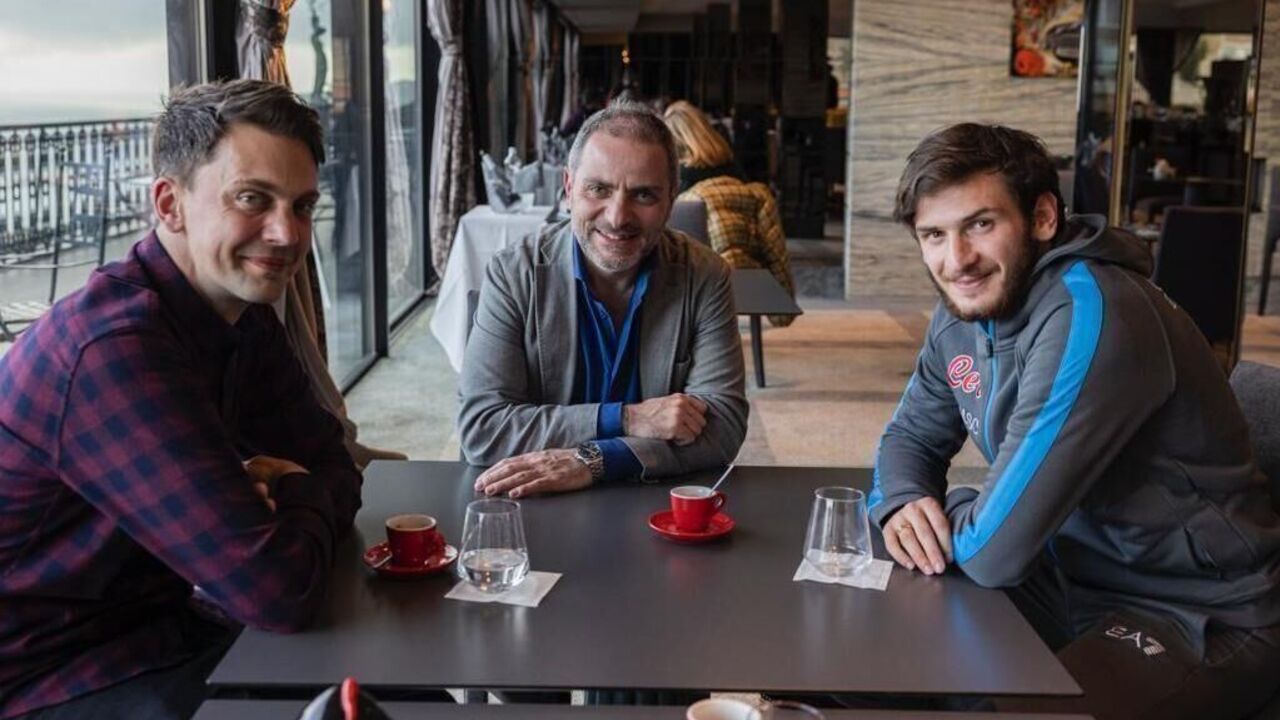
Iossa was a teenager when Maradona helped Napoli beat Michel Platini’s Juventus and Silvio Berlusconi’s revolutionary AC Milan side to the Serie A title. The coverage back then, he said, was focused squarely on Maradona, an “extraterrestrial football player” and larger-than-life figure with a quasi-religious following who single-handedly put Naples on the map.
“We transformed Diego Maradona into a god,” Iossa said. “There’s no religion in it, there’s no superstition in it, it’s another category. He’s a protector of the city and of the team.”
The reaction was different this year. People viewed Napoli as a whole, not through the lens of a single player. The sudden rise of Kvaratskhelia – a 22-year-old from Tbilisi who showed negligible promise as the Georgian league’s joint-fifth-highest scorer last season – was only part of the underdog story.
“I would tell the kids of tomorrow about Kvaratskhelia from Georgia, (leading scorer Victor) Osimhen from Nigeria, (defender Min-Jae) Kim from South Korea, all guys from different countries, different cuisines, different mentalities, but if you are all together, you can do something special,” Bellini said.
That such an international team coalesced in Naples – often described in Hollywood as a mafia-infested city with an intolerance of foreigners – is more revealing than the title itself.
‘Shootouts in the streets’
Italy is a country united in name only, and Naples often finds itself on the outskirts of the country’s priorities. It’s poorer than the financial centers of Milan and Torino, lacks the romanticism of Venice and Florence, and is far more hectic than Rome. Naples suffers from damaging stories about its criminal underbelly, and many natives end up leaving in search of employment.
“The feeling is that you’re always last because you were born disadvantaged,” Roberto Saviano, the best-selling author of “Gomorrah,” an insider account of life in Naples under the rule of criminal organization Camorra, wrote in Corriere della Sera. “Knowing you can either leave behind the city, your family, and your affections, or make do with what there is: struggling public services, dilapidated schools, administrators who think of themselves as kings. Not even national politics can put a stop to it.”
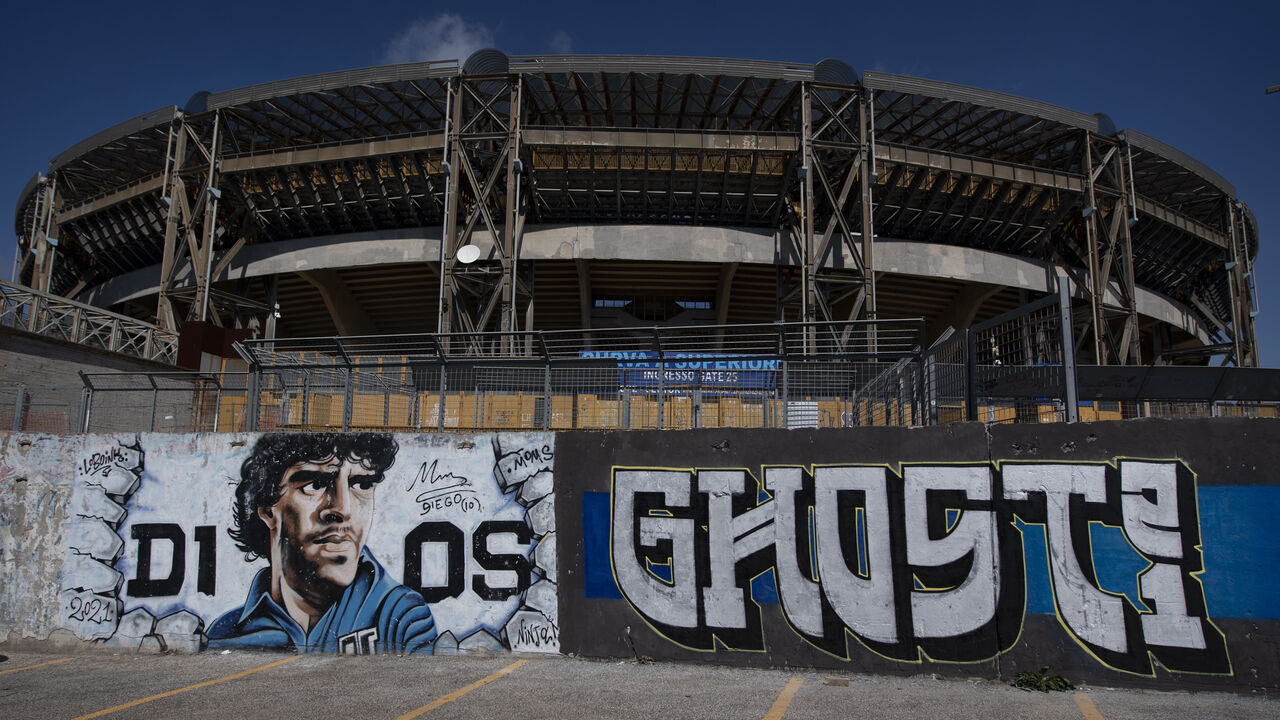
The team has faced similar disadvantages. It’s played its games in a rundown, government-owned, 1960s-era stadium that requires an estimated €50 million in repairs and is now up for sale despite owner De Laurentiis’ best attempts to get the municipality to pay for renovations. The financial discrepancy between teams in the north and south is another obstacle to overcome. Napoli’s payroll is less than half of Juventus, and southern cousins Salernitana and Lecce rank 11th and 14th, respectively, out of Serie A’s predominantly northern 20 teams.
But the look and feel of southern Italy – with its depressing concrete structures, abandoned buildings, impoverished boroughs, and public battles against political corruption – give people the wrong impression about Naples. Michele Borrelli, the 30-year-old who runs his own ticketing service for tourists looking to watch Napoli live, has had to answer question after question about all the crime, garbage strikes, and shootings that only seem to happen in Naples.
“They want to come to Napoli, but they say, ‘Will I be safe in Napoli? Because my friend in the north tells me that there are shootouts in the streets and there is mafia everywhere.’ I get these messages a lot,” Borrelli said. “I have to tell them it’s fine. It’s just a normal city. Maybe it’s a little bit crazy, but in a good way. There’s a little bit of chaos. Napoli is a bit raw, but it’s not more dangerous than Rome or Milan or any other city in the north.”
That’s what makes this title so sweet to everyone who supports Napoli.
A week after they clinched the title, hardcore fans known as ultras unfurled a banner of the Italian shield upside-down, causing confusion on social media and national television. But it was entirely intentional. To hang a banner of an institution upside-down is to protest its existence, and it’s tradition, as with any spoil of war.
Below that banner read another with very particular phrasing: “Champions in Italy.”
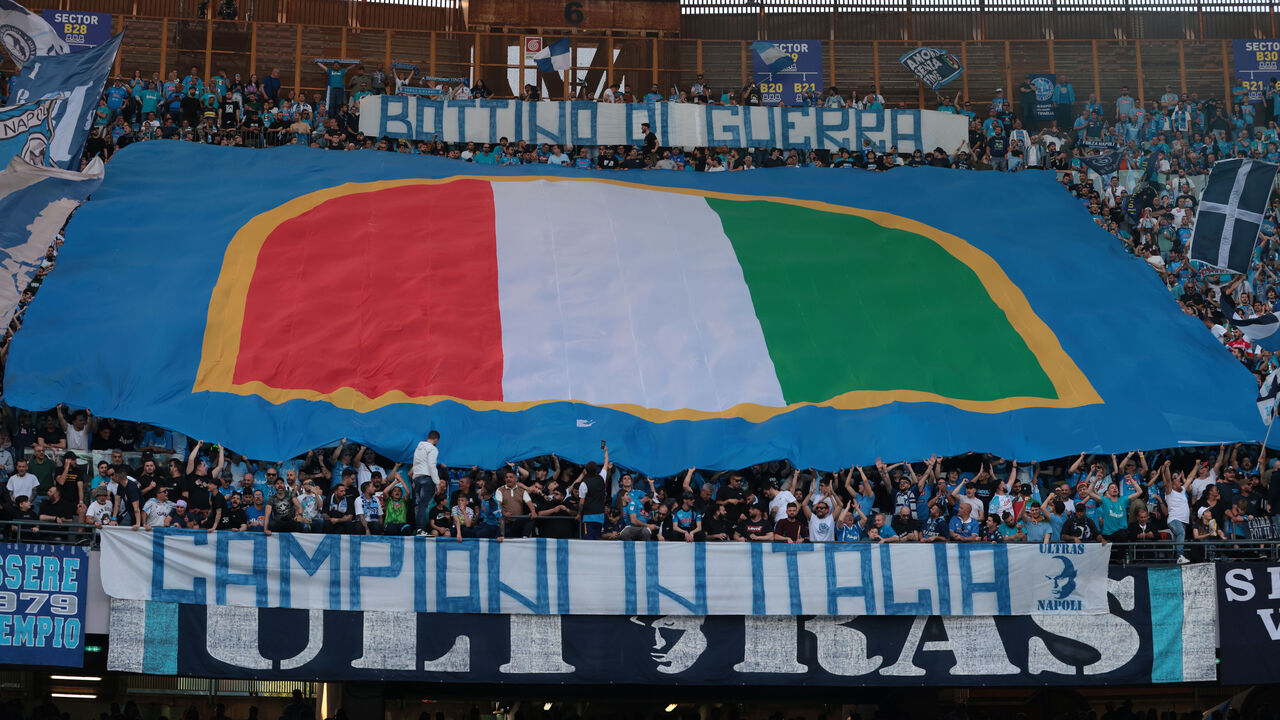
“It was a way of saying, ‘We don’t identify with this country, you are you and we are us,'” Borrelli, who usually sits among the ultras, said. “It was a little bit of a joke, too, to say, ‘We stole the Scudetto from you.'”
It’s also why people in the city find it hard to believe anyone would ever like them back.
“I give out tickets at a wine bar outside of the stadium,” Borrelli continued. “All the tourists come there, I meet them, we speak a little bit, and then they go to the stadium. And a lot of locals in that bar, after I spend five or 10 minutes there, they come to me and say, ‘Look, can I ask you a question?’ What do you do?’ And I tell them. They ask me, ‘Are these people Napoli fans?’ I said, ‘Yeah.’ And they ask me, ‘Why?’ They were shocked. People from abroad can love this city and can love the team even if they have no connection to it.”
Celebrating with ultras
Most of the 80 people who show up to watch Napoli in a cafe bar off a major highway in Brampton, Ontario, have no direct connection to the club. Though some of Napoli Club Toronto’s members have roots in southern Italy – namely in the provinces of Puglia, Calabria, and Sicily – it’s not what guides their passion for the team.
“You don’t have to be Neapolitan to support Napoli,” Guadagno, the club’s co-founder, said. “Napoli chooses you. We have one member who’s Canadian born and bred. Big Napoli fan. He’s been a part of this club since we started in 2019. It’s not a matter of ethnicity, it’s a matter of lifestyle.”
Why too would a man from Iran travel to Naples just to sit with Borrelli and the rest of the ultras during a match against Fiorentina? Ultras are often described as brutes who control everything from the flow of drugs in the city to the sale of tickets, and they were sitting just a few seats away from the section’s kingpin. But instead of suspicious glares, the man received hugs.
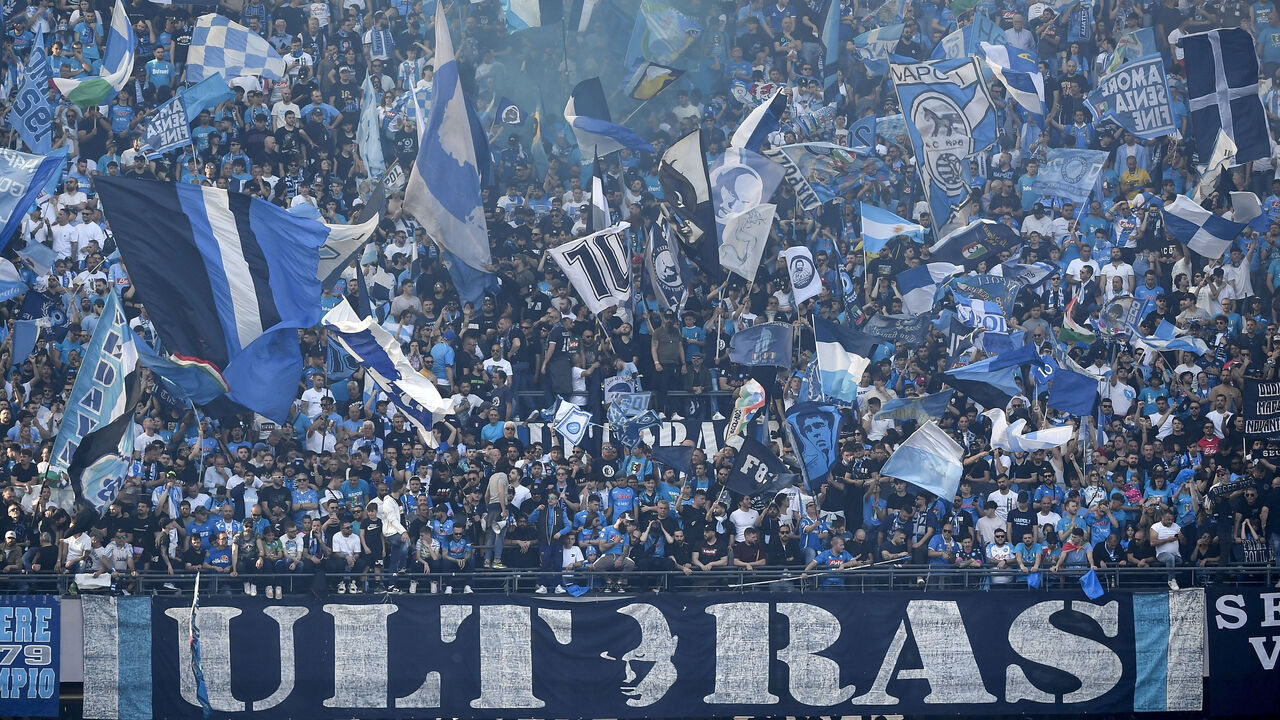
“Tourists get treated much better than locals. Not as locals, but much better,” Borrelli said. “They get offered free beers, free snacks, everything for free. They get celebrated, they get gifted scarves, because we’re not used to being appreciated in Italy.”
As long as people are curious about the city and arrive with an open mind, Naples feels a lot less like a place of seedy activity and more like a family. It truly is a complicated place, far from traditional Italian living, far from the curated experiences tour guides offer in Venice, Florence, and Rome where the menus are in English and authenticity is difficult to find. Neapolitans speak their own version of Italian, not some ancient dialect passed on from hilltop family to hilltop family but a serviceable language spoken every day between the richest and poorest in the city. It’s real, it’s raw, and it’s spectacular.
Maybe this year’s Scudetto will change the narrative. Tens of thousands from abroad are traveling to Naples this week in hopes of getting a ticket to Napoli’s final game of the season on Sunday. Borrelli himself had to stop accepting requests. And while they have as good of a chance of landing one as they do winning the lottery, people are going there just to feel what it’s like to be Neapolitan.
You may like
Serie A
Managerial merry-go-round: Predicting hires for marquee jobs
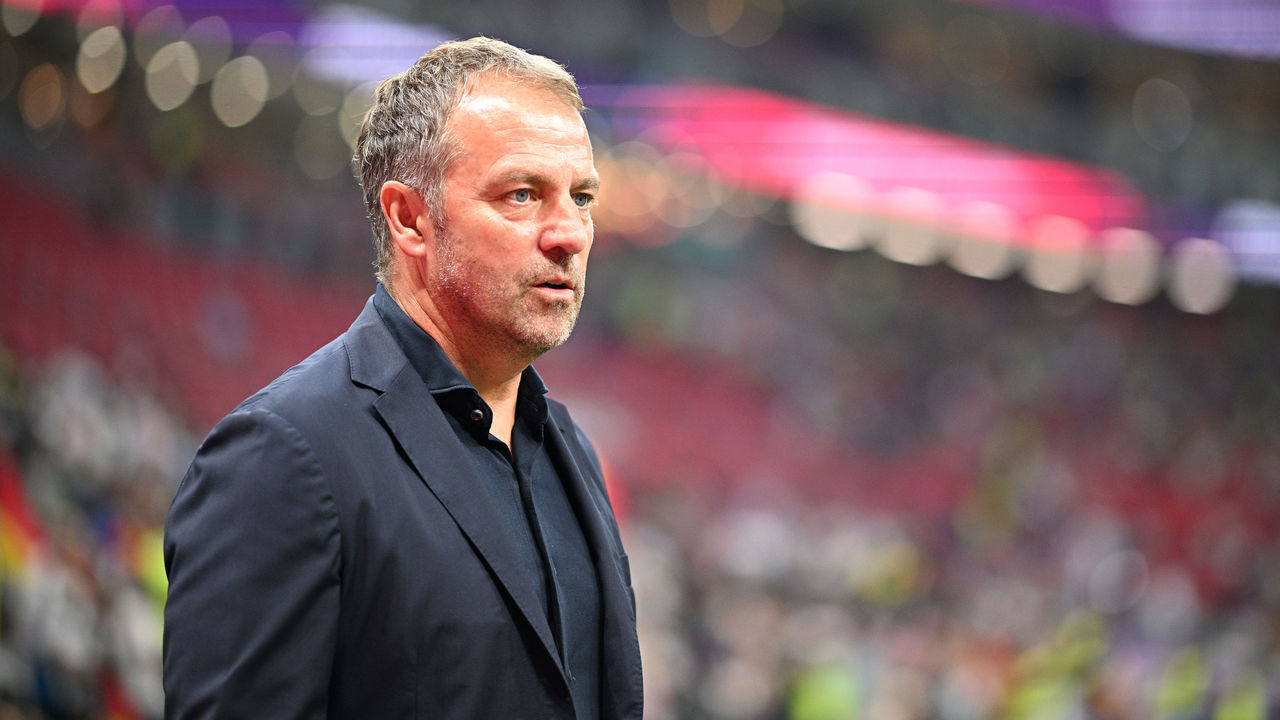
Find the biggest stories from across the soccer world by visiting our Top Soccer News section and subscribing to push notifications.
Forget the transfer window. World football’s biggest source of summer intrigue may very well come from a bevy of impending coaching hires after some of Europe’s most illustrious jobs suddenly became available all at once.
Jurgen Klopp dropped the first bombshell, deciding to depart Liverpool at the end of the campaign after a transformative nine-year spell at Anfield. Then, Xavi Hernandez, citing the “cruel and unpleasant” nature of his work at Barcelona, announced he would do the same. Bayern Munich and Thomas Tuchel promptly followed by confirming they will part at season’s end, too. In the blink of an eye, three coveted coaching positions at iconic clubs opened up at a time when some of the sport’s most decorated tacticians just so happen to be looking for work.
With that in mind, and with several other elite teams likely also looking for a new bench boss, we’re identifying ideal candidates for each job.
Open seats
Barcelona
Hansi Flick
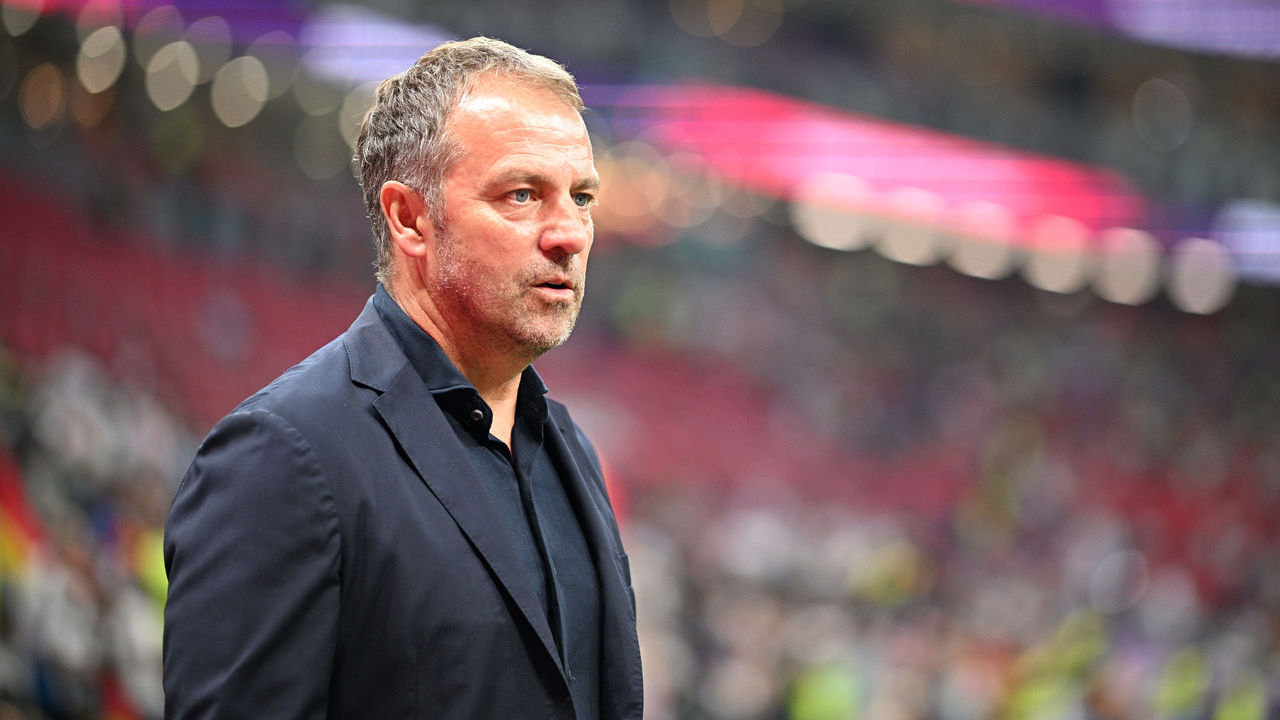
Xavi’s decision to leave his post was the most surprising of all the recent announcements. Klopp has spent nearly a decade at Anfield, winning almost every possible trophy, while Tuchel’s fit at Bayern was always tenuous, at best. The decorated ex-midfielder, however, only took over at Barca in 2021 and led his former team to a league title in his first full season. Even still, he said the job was “terrible on a mental health level” and sapped his morale. Not exactly a ringing endorsement. Constant criticism, financial decay, and off-field disarray may deter some, but this remains one of the sport’s biggest roles.
Former Bayern Munich and Germany manager Flick checks too many boxes to be overlooked. He led Bayern to a treble in 2020, has experience dealing with big personalities, and his attack-minded style gels with Barcelona’s longstanding philosophy. Perhaps most critically, he’s not under contract anywhere else, so cash-strapped Barca wouldn’t have to pay a fee to obtain him. In what could be viewed as a preemptive move, Flick joined Pini Zahavi’s Gol International agency in February. The Israeli super agent has very close ties with Barca president Joan Laporta, particularly after brokering Robert Lewandowski’s transfer in 2022. That relationship matters, and it puts Flick in prime position to become the next Barcelona manager.
Bayern Munich
Sebastian Hoeness
Make no mistake, Bayern Munich want Xabi Alonso. The tug-of-war with Liverpool is underway behind the scenes. Should they miss out on their primary target, though, there’s another young tactician making waves in Germany who would be a perfect fit at the Allianz Arena. Were it not for the remarkable job Alonso’s doing at Leverkusen, Hoeness, 41, would be the talk of the town. Stuttgart were last in the Bundesliga when he assumed the job in April 2023. After navigating a relegation playoff to remain in the top tier, he now has them sitting comfortably in a Champions League place, mixing possession-based football with occasional bursts of more direct play.
That he recently signed a contract extension with Stuttgart complicates matters, but only somewhat. It wouldn’t be prohibitive. Bayern can afford to pay whatever is necessary to pry him away. If anything, seeing their title-winning streak end will only strengthen their resolve to do so. And then there’s that famous name. Hoeness’ uncle, Uli, is Bayern’s honorary president and still wields immense power. His father, Dieter, scored over 100 goals for the Bavarian outfit. And Sebastian himself has already worked for the club, winning a third-division title with Bayern’s U23 team in 2020. Those connective tissues are tough to ignore.
Liverpool
Xabi Alonso
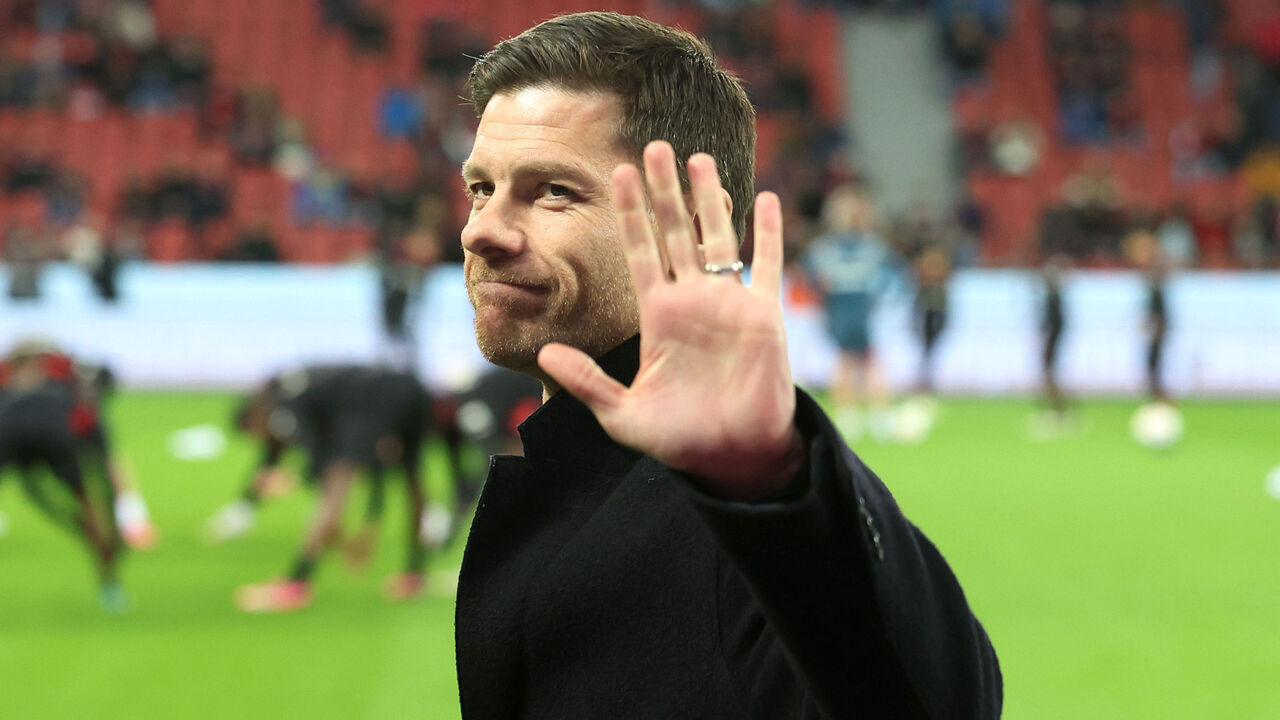
The enormity of the task facing Liverpool can’t be overstated. Klopp is more than just a wildly successful manager who brought the Merseyside club back to the pinnacle of the sport. He’s a truly beloved figure who forged an unbreakable connection with the city and fans. He cares deeply about the people at the club and has always wanted everyone to share in its success. Replicating that 100% with their next hire, is, frankly, impossible. There isn’t another Jurgen Klopp out there. Liverpool need to find someone with similarly holistic values who can take what the German has built and put their own mark on it. One man stands out as the obvious choice.
Alonso, the club’s top target, isn’t a perfect stylistic match on the pitch. Liverpool, who value a data-driven approach to these decisions, will already know that the Spaniard’s Leverkusen team doesn’t play the same type of aggressive vertical game that Klopp’s men have long thrived on. But he can be adaptable, as his players have noted during their remarkable unbeaten season thus far. He trusts his tactical ideas but isn’t beholden to them. Having spent five years at Anfield during his playing career, there’s also a bond already in place that the other realistic candidates cannot claim. And, crucially in the supporters’ eyes, he has Klopp’s approval; the outgoing coach recently dubbed Alonso the “standout” manager of the new generation. There are plenty of good options available, but he’s the right one for Liverpool.
Other clubs to watch
AC Milan
Fluctuating levels of fan satisfaction with a manager isn’t unique to AC Milan. Far from it. But, even within that context, the constant shift in sentiment toward Stefano Pioli has been disorienting for some time. The Italian was a hero when he delivered Milan their first Scudetto in over a decade in 2022 and then got them to the semifinals of the Champions League.
But his poor record against city rivals Inter is the cause of much consternation, and, even though Milan have surged up to second place in Serie A in 2024, rumors about Pioli’s potential successor have been swirling for much of the season amid inconsistent performances and some humiliating defeats. Antonio Conte, seemingly ready to return to the touchline after spurning Napoli’s advances last year, could complete an Italian trifecta having already coached Juventus and Inter, where he won league titles with both.
Bayer Leverkusen
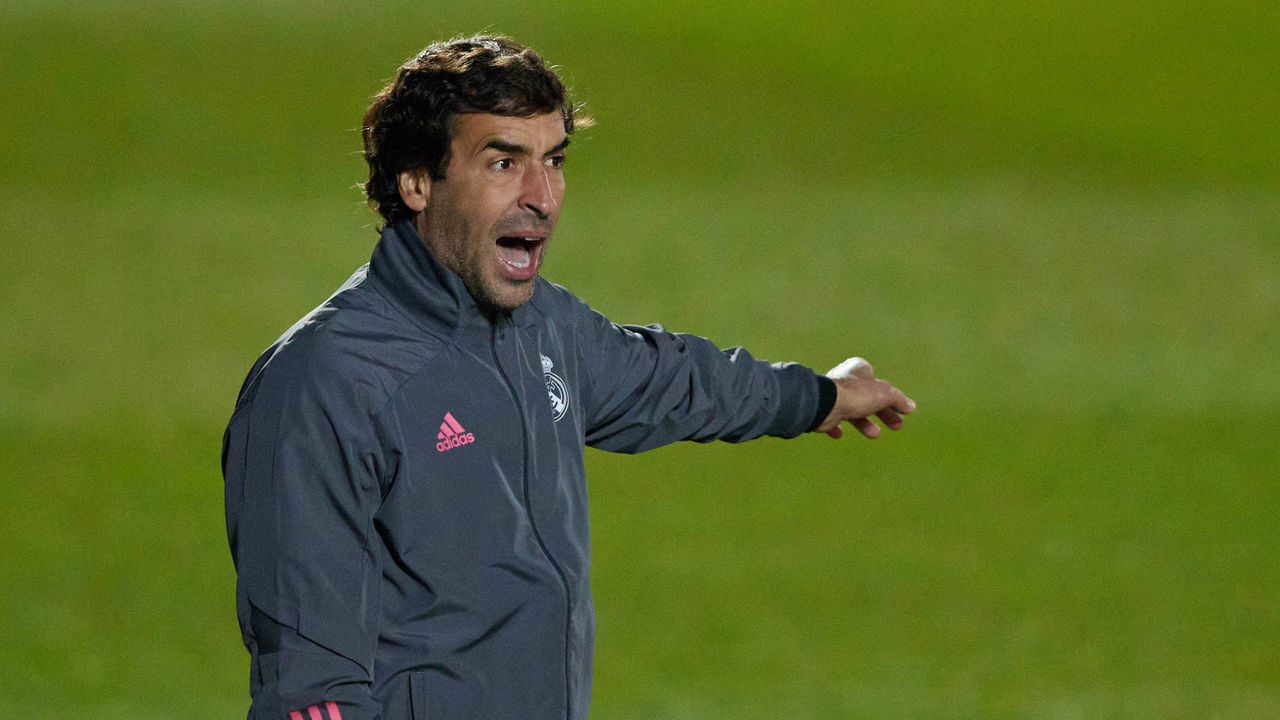
Xabi Alonso’s departure is all but guaranteed. The identity of his potential successor, however, is a mystery. What’s most unusual is the lack of chatter. By now, you’d expect agents and intermediaries to leak information about their clients being connected with the job. Maybe the big-name coaches view it as a poisoned chalice?
Barring a huge collapse, Alonso will guide Leverkusen to their first-ever Bundesliga title. Any incoming boss will be held up against that standard and have to deal with a rejuvenated Bayern Munich while likely losing some of the club’s top talents in the summer. The best fit, then, is a young manager who, like Alonso when he arrived at the BayArena, is trying to rise through the ranks. Spanish legend Raul, currently coaching Real Madrid’s Castilla, has history in Germany from his time at Schalke and fits that bill. After experiencing huge success with one ascendant Spaniard, why not another?
Borussia Dortmund
Edin Terzic’s position has been under threat ever since Dortmund’s brutal collapse on the final day of the 2022-23 campaign handed the title to perennial rivals Bayern Munich. The team’s error-prone performances this season have done little to quell speculation over his future. Dortmund sit fourth in the Bundesliga, one point above RB Leipzig in the race for the division’s final Champions League place.
The next two months will almost certainly be decisive, both for the club’s fortunes, and Terzic’s. Coming out of the international break, Dortmund play Bayern, Stuttgart, and Atletico Madrid – twice – in the Champions League. They immediately follow up the second leg of that quarterfinal tie with games against Leverkusen and Leipzig. You couldn’t concoct a more challenging gauntlet if you tried. If Dortmund flounder, they could look to Julian Nagelsmann, whose contract as Germany’s national team boss is slated to expire after Euro 2024.
Chelsea
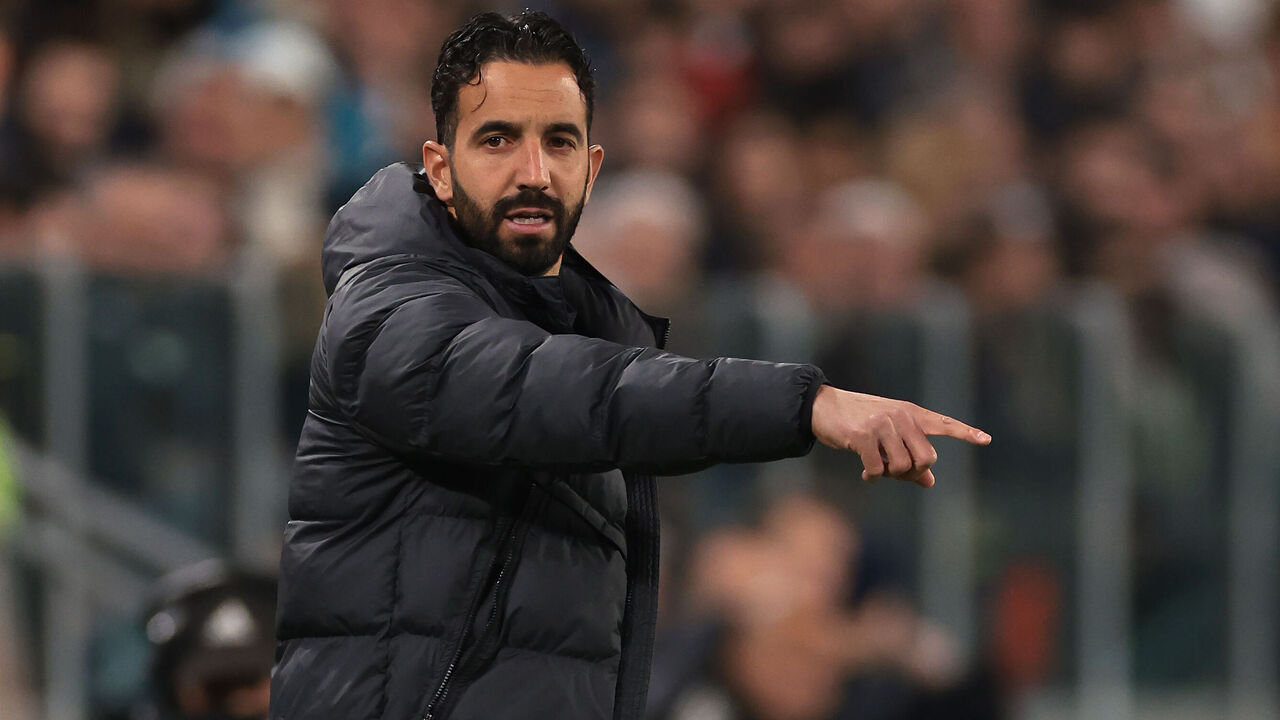
How many more times can Mauricio Pochettino ask Chelsea supporters for patience? How long until he gets tired of hearing his own fans openly mock him and question his decisions? The Argentine has remained diplomatic and continues to insist he’s dedicated to the club’s long-term project despite the early hiccups. Everyone has a breaking point, though.
If Pochettino gets fed up, or the club’s infamous ownership group becomes restless and wants to make another coaching change, Ruben Amorim could be in line for his big opportunity in the Premier League. The Portuguese tactician, 39, is highly regarded after leading Sporting CP to their first league title in 19 years in 2020-21, and his uptempo, high-pressing style figures to fit well in England. He also has an excellent track record working with blossoming talents, something he’d find plenty of in west London following Chelsea’s lavish spending on some of the game’s most intriguing young players.
Juventus
Massimiliano Allegri did an excellent job guiding Juventus through a turbulent 2022-23 season, acting as the calm pillar of the club while everything around him was in turmoil thanks to points penalties, off-field investigations, the shocking mass exodus of the club’s board of directors, and more. He navigated the stormy seas and deserves credit. But this season was supposed to be a significant step forward. He said as much.
Instead, his team has stagnated on the pitch after an encouraging start, and it seems clear he’s not the right manager to take this group to the next level. The squad may be flawed in certain areas, but it’s much better than the tiresome football it’s been showing, especially during a miserable run of one win in eight games. Enter Thiago Motta, the 41-year-old who has high-flying Bologna in line for a Champions League place by applying the type of exciting style that could liberate Juventus’ players.
Manchester United
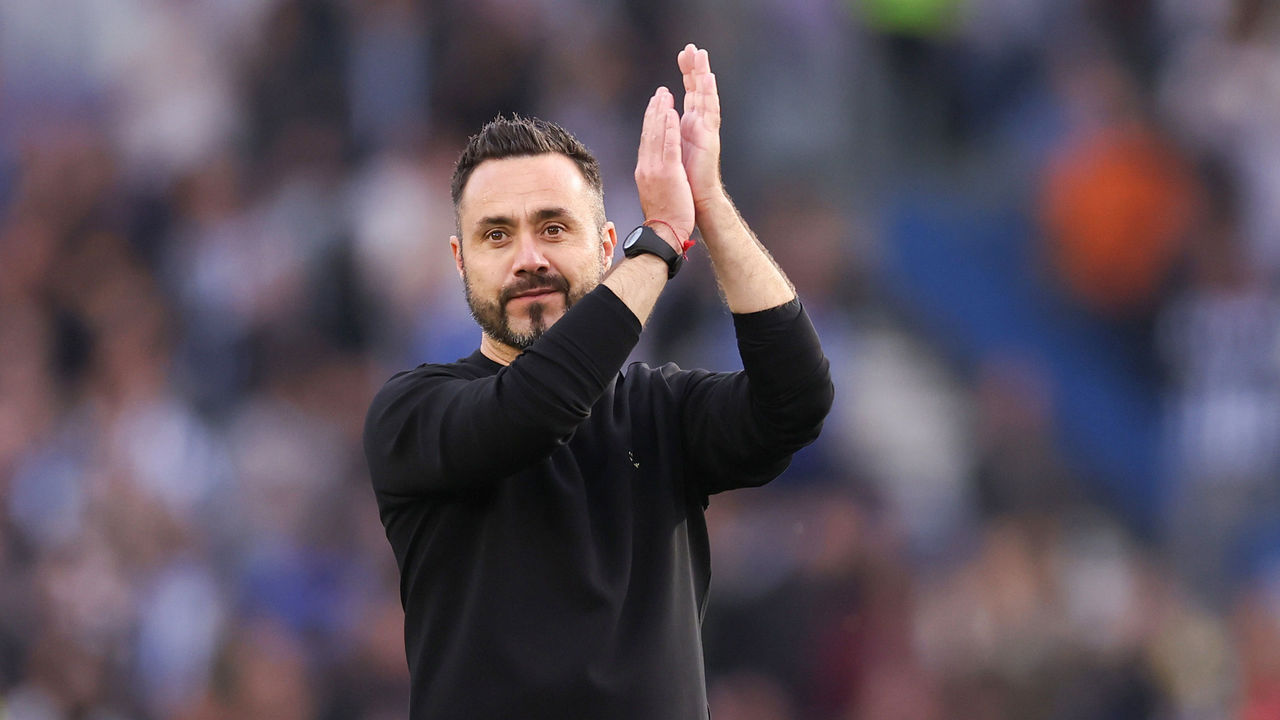
For what feels like the millionth time, Erik ten Hag has said he hopes Manchester United’s latest win – an intoxicating last-second triumph over rivals Liverpool in the FA Cup – will be a turning point in their otherwise meandering season. Fitting, really. There have been so many “turning points” already that United are just going in circles.
Stability is vital for the long-term health and success of any club, but not just for the sake of it, and not when it’s become clear the current manager isn’t capable of taking the team to new heights. Ten Hag’s questionable personnel decisions should have the new INEOS chiefs looking to make a change, let alone the tepid play and inconsistent results. Roberto De Zerbi should be atop the list of replacements. Manchester United were once synonymous with entertaining football. The Italian could help reinstate that reputation and get the Red Devils out of their rut.
Napoli
Replacing the mastermind behind Napoli’s first Serie A title in 33 years was always going to be an enormous, unenviable task, but president Aurelio De Laurentiis bungled it in spectacular fashion. Rudi Garcia seemed like a bad fit to succeed Luciano Spalletti right from the start, and so it proved. He lasted five months. His replacement, Walter Mazzarri, didn’t even make it that long.
Napoli are on their third coach in what has been a disastrous title defense, but Francesco Calzona is little more than a temporary solution until De Laurentiis starts the process over again in the summer. To avoid making the same mistakes, he should look to Fiorentina’s Vincenzo Italiano. The 46-year-old has worked his way up the divisions; he got Trapani promoted from Serie C, helped Spezia jump from Serie B to the top tier, and brought the Viola to the Conference League final last season, all while retaining an attack-minded style of play. He’s earned this opportunity, and the interest is mutual.
Roma
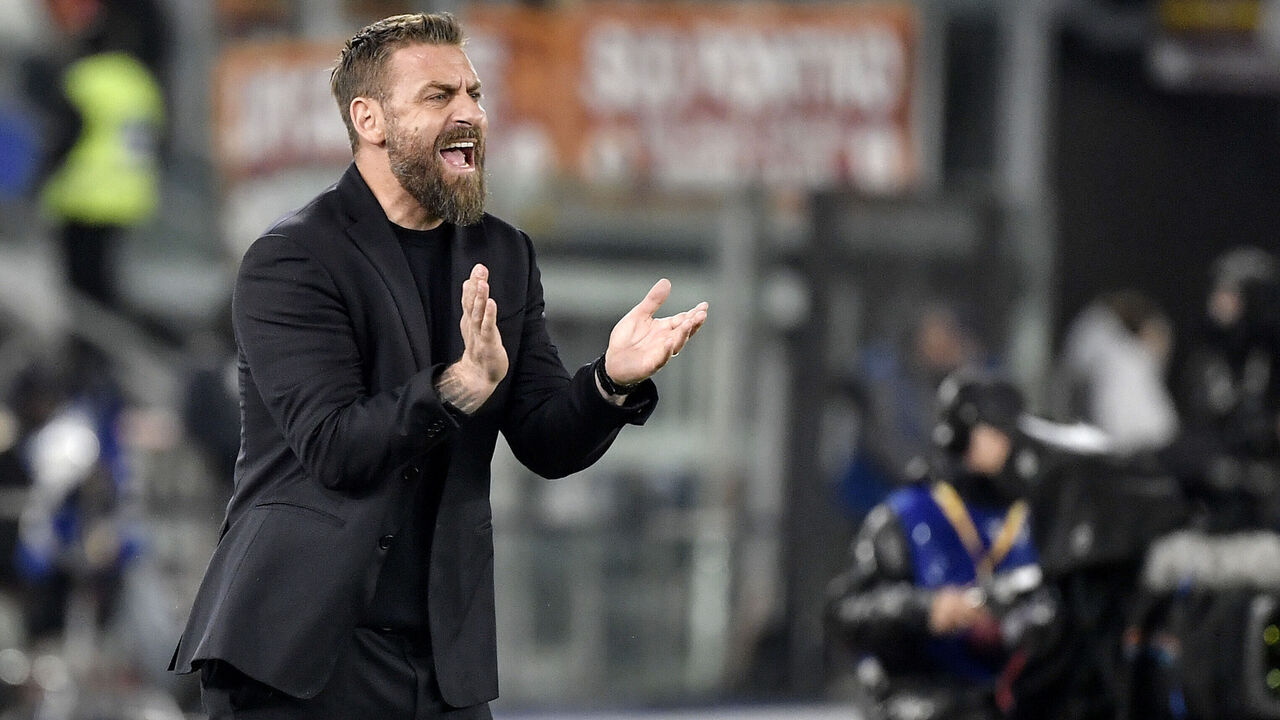
With very little coaching experience to his name and just a six-month contract in hand, Daniele De Rossi was only supposed to be a temporary solution when he replaced the beleaguered Jose Mourinho on the Roma bench in mid-January. All the club legend has done since then is totally reinvigorate the team, racking up nine wins in 13 matches across all competitions – one of those being a shootout victory over Feyenoord in the Europa League – and firing Roma into the race for a Champions League spot with a free-flowing, goal-laden brand of football.
Not bad for someone whose CV only previously included a disastrous four-month stint with SPAL in Serie B. Assuming things don’t fall off a cliff in the season’s final weeks, it would be crazy for Roma to not keep De Rossi on the bench. The players clearly respect the former club captain, and he’s quickly fostered a strong bond with them. What message would it send if they opted for someone else now?
Serie A
Who's in, who's out? Breaking down Euro 2024 qualifying, playoffs, draws
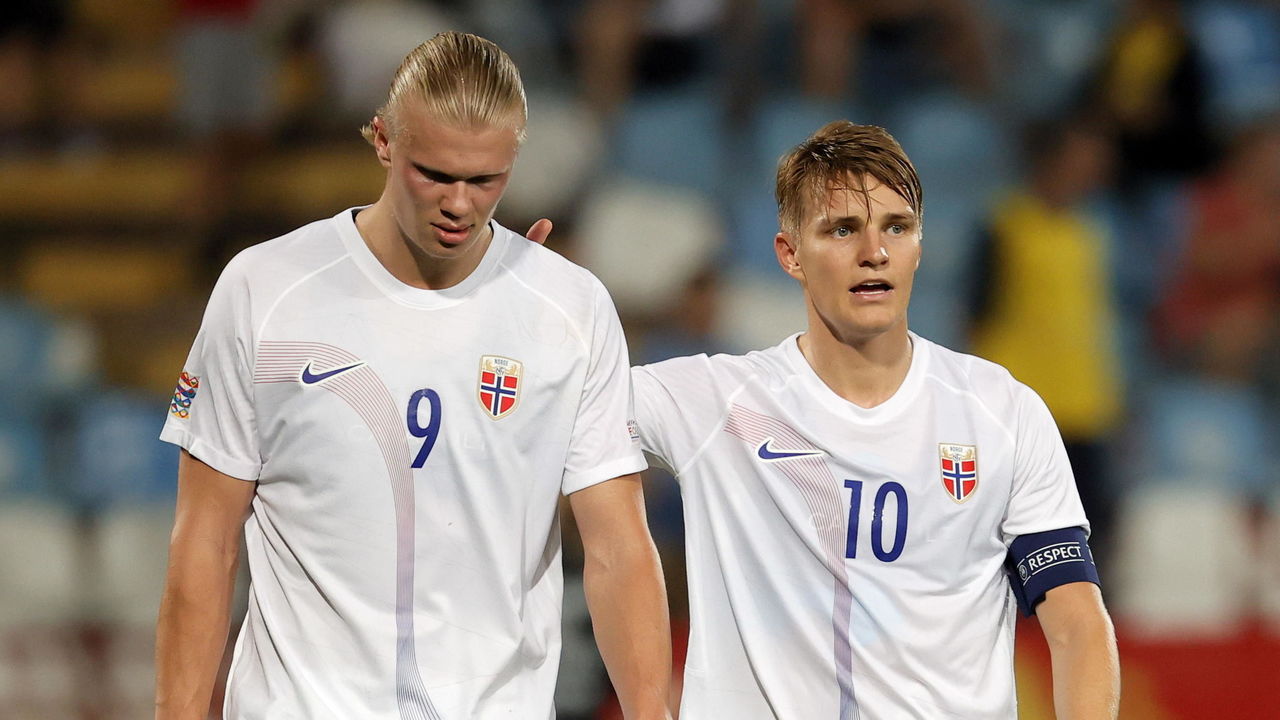
The Euro 2024 puzzle is nearly complete.
The 20 automatic qualifying berths for next summer’s tournament were finalized on Tuesday, as Croatia grabbed the last of those spots, solidifying second place in Group D via a 1-0 victory over Armenia.
With Germany qualifying directly as the host nation, only three spots remain undecided. Twelve teams are now slated to compete in the qualifying playoffs, set for March 2024, to determine who’ll round out the field.
In the wake of Tuesday’s action – and looking ahead to the tournament draw – here’s everything you need to know about Euro 2024 right now.
Which teams have qualified automatically?
As outlined above, 21 of the 24 tournament berths are accounted for; the top two teams from each of the 10 qualifying groups earned progression, joining Germany. Here are the nations that can sit back and relax knowing their tickets are booked for next year’s event:
- Spain (first in Group A)
- Scotland (second in Group A)
- France (first in Group B)
- Netherlands (second in Group B)
- England (first in Group C)
- Italy (second in Group C)
- Turkey (first in Group D)
- Croatia (second in Group D)
- Albania (first in Group E)
- Czechia (second in Group E)
- Belgium (first in Group F)
- Austria (second in Group F)
- Hungary (first in Group G)
- Serbia (second in Group G)
- Denmark (first in Group H)
- Slovenia (second in Group H)
- Romania (first in Group I)
- Switzerland (second in Group I)
- Portugal (first in Group J)
- Slovakia (second in Group J)
Who will take part in the playoffs?
As was the case for Euro 2020, the qualification playoff spots for the upcoming tournament were based exclusively on teams’ performances in the 2022-23 UEFA Nations League.
The 12 teams that have reached the playoffs are split into three sections – Paths A, B, and C – and will compete in four-team tournaments. These will all be single-elimination games, with six semifinal matches scheduled for March 21, 2024, and the decisive finals in each path taking place on March 26.
The three path winners advance to Euro 2024. The main tournament draw will already be completed by this time – more on that soon – meaning the final three qualifiers will already know which group they’ll be slotted into.
The playoff paths, seeding, and semifinal matchups are as follows:
Path A: Poland (1) vs. Estonia (4), Wales (2) vs. Finland/Ukraine/Iceland (3)
Path B: Israel (1) vs. Ukraine/Iceland (4), Bosnia and Herzegovina (2) vs. Finland/Ukraine (3)
Path C: Georgia (1) vs. Luxembourg (4), Greece (2) vs. Kazakhstan (3)
A draw on Thursday, Nov. 23 at 6 a.m. ET will determine the placement of Finland, Ukraine, and Iceland while also deciding which semifinal winners will host the respective finals for each path.
Who missed the tournament completely?
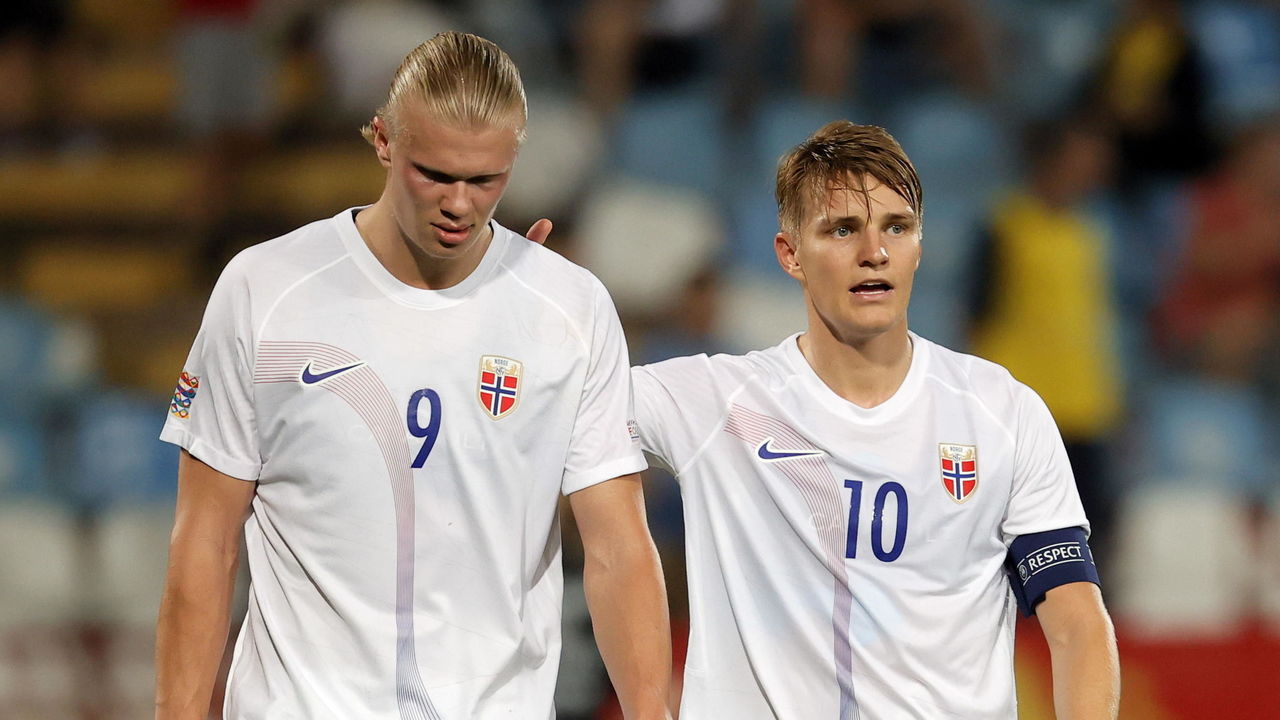
Premier League stars Erling Haaland and Martin Odegaard will be watching another major international tournament from home as Norway once again failed to qualify. Other notable sides to miss out include Sweden and Ireland.
When is the main tournament draw?
The draw for the tournament proper will take place on Saturday, Dec. 2, at the Elbphilharmonie in Hamburg, Germany; Hamburg is one of the host cities for the competition. The draw begins at noon ET.
How will teams be seeded for the draw?
Seeding for the Euro 2024 draw is based on the teams’ performance in qualifying, and, according to Dale Johnson of ESPN, breaks down as follows:
- Pot 1: Germany, Portugal, France, Belgium, Spain, England
- Pot 2: Hungary, Turkey, Denmark, Albania, Romania, Austria
- Pot 3: Netherlands, Scotland, Croatia, Slovenia, Slovakia, Czechia
- Pot 4: Italy, Serbia, Switzerland, Playoff A, Playoff B, Playoff C
Germany gets an automatic place in Pot 1 as the tournament host and is joined by the five group winners from qualifying with the best records. The remaining group winners go into Pot 2, along with the best runners-up. The final two pots are based on how many points the remaining teams collected in qualifying, with the three playoff winners slotting into Pot 4.
Reigning European champion Italy assumes an unfamiliar place in Pot 4 after a nervy qualifying campaign and, in theory, will be forced to navigate a loaded group as it looks to defend its title. With the likes of the Azzurri, the Netherlands, and Croatia in Pots 3 and 4, there’ll almost certainly be some heavyweight encounters sprinkled in amongst the six groups.
Euro 2024 kicks off on June 14 of next year. Germany will take part in the opening match at Bayern Munich’s Allianz Arena.
The top two teams from each of the six groups, along with the four best third-placed finishers, advance to the knockout stages, where every game is single elimination, starting with the round of 16 through to the final.
The showpiece match will be held at the Olympiastadion in Berlin on July 14.
Serie A
Women's World Cup predictions: Champion, biggest flop, and much more
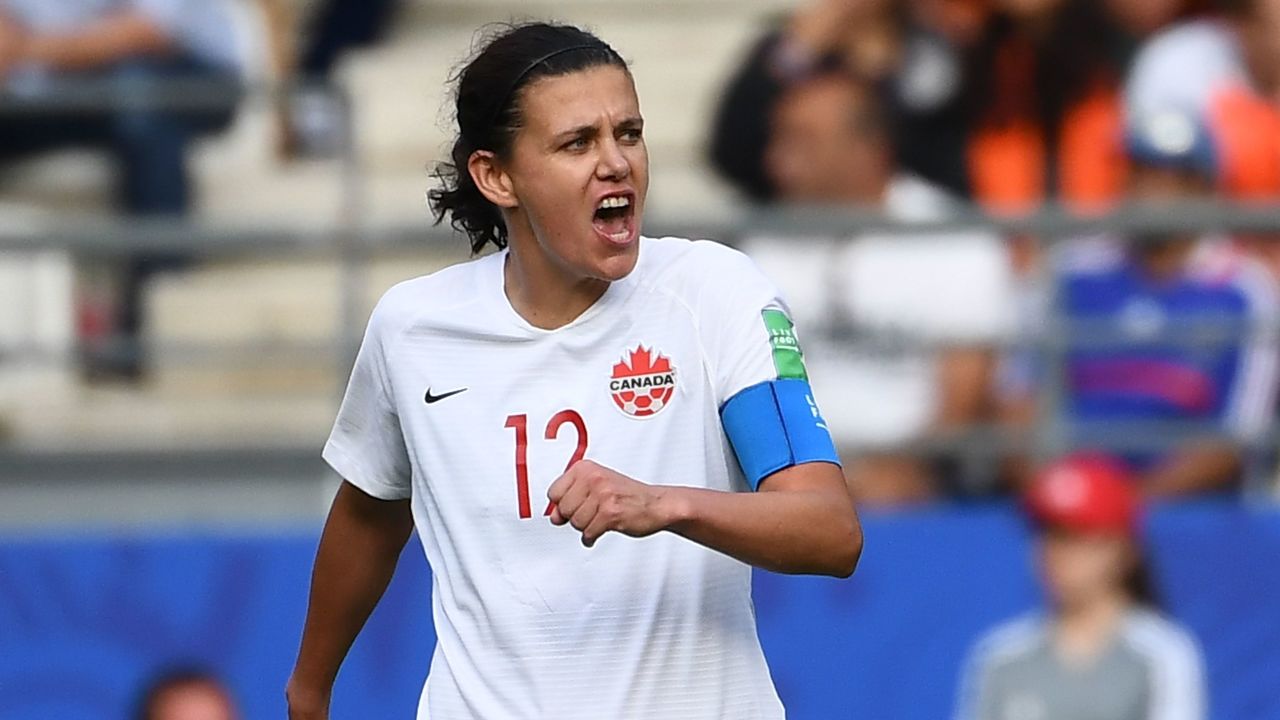
With the 2023 Women’s World Cup opening Thursday in New Zealand, we’re breaking out the crystal ball and offering up some tournament predictions.
Most excited about …
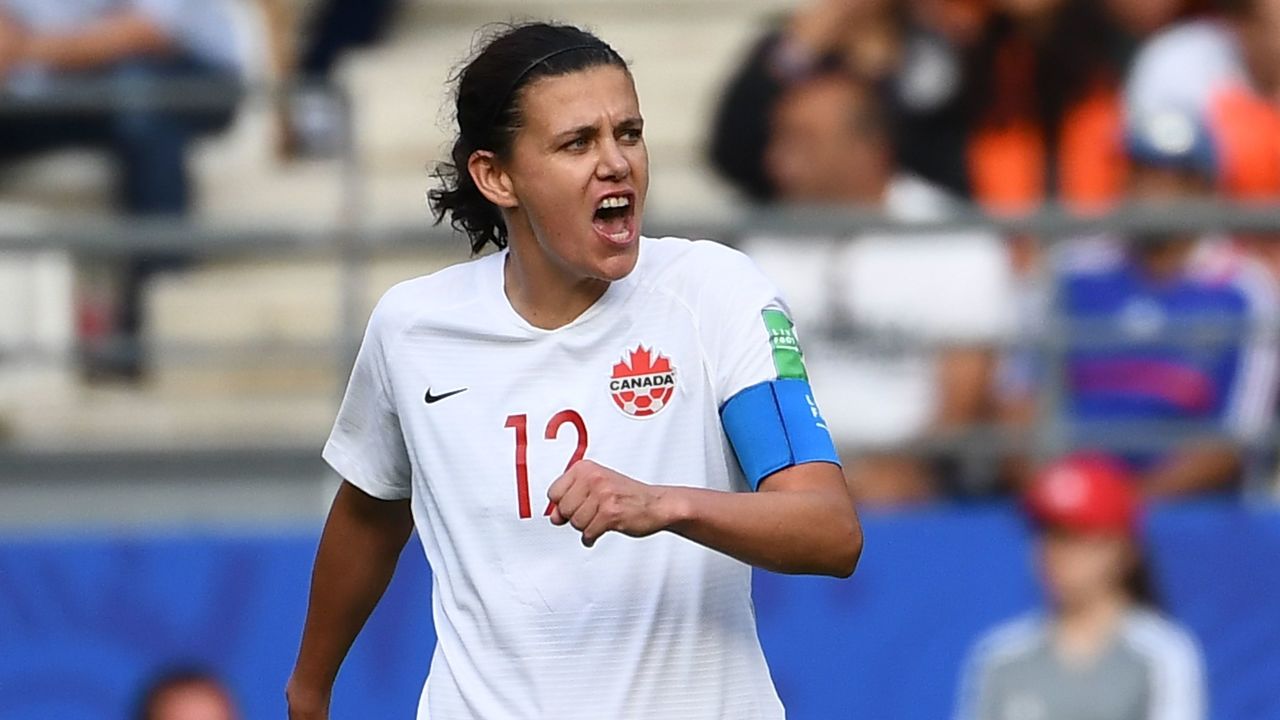
Anthony Lopopolo: Christine Sinclair is competing in her sixth – and likely final – World Cup. While she remains the most prolific international goal-scorer of all time, the 40-year-old is missing a winner’s medal from the biggest tournament of all. In her three-decade career, Sinclair has often led Canada to glory, including at the Tokyo Olympics, where the women won gold. But she’ll need help from her younger teammates – the very generation of girls she inspired with her match-winning displays – to make a deep run in Australia and New Zealand.
Gianluca Nesci: A tournament that could go down as a transformational moment for women’s football – and sport in general. “It feels like a real opportunity to blow the lid off just in terms of fanfare, media, sponsorships, and the sort of larger business around this sport,” U.S. icon Megan Rapinoe said ahead of the tournament. She’s right. Inequities persist in women’s soccer – powerhouse teams like Canada, France, and Spain have all recently been engaged in public battles for better pay, treatment, or both. But this tournament, expanded to 32 teams and generating significant interest before a ball has even been kicked, feels like it could be a vessel for long-term change that could benefit both current and future generations of players.
Breakout star
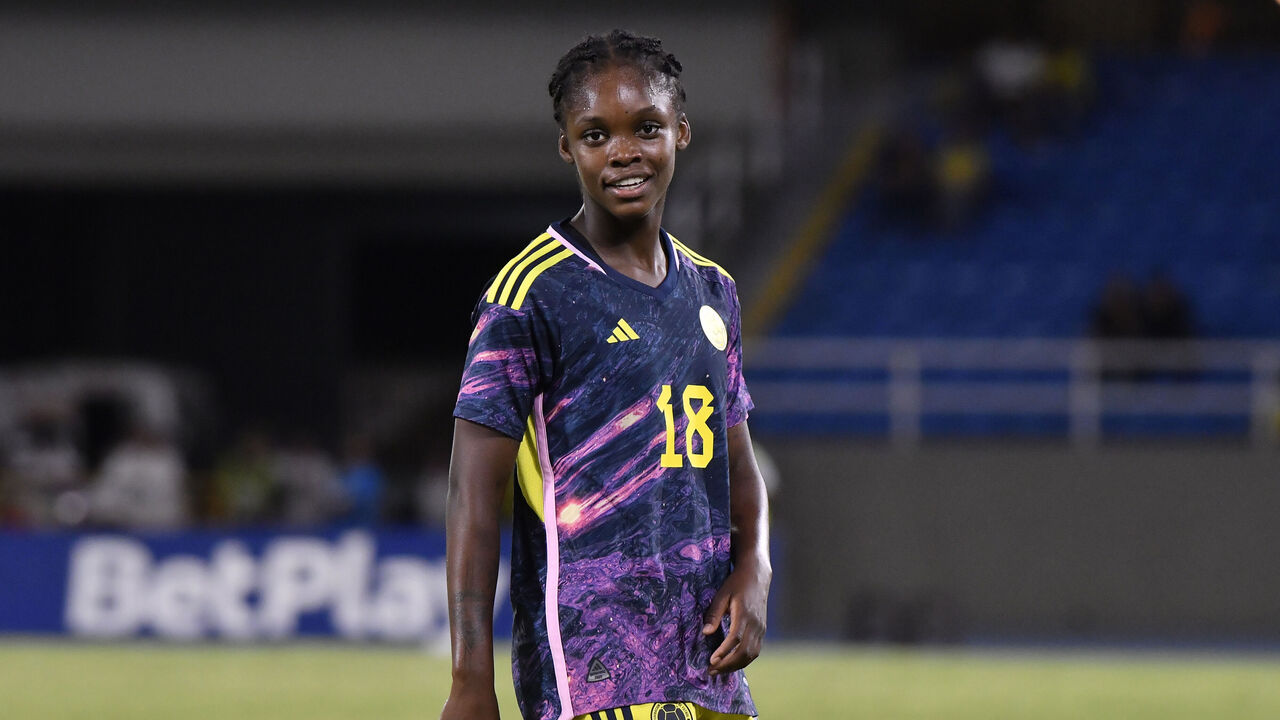
Lopopolo: Giulia Dragoni. At 16, Dragoni has already made her debut for the Italian national team and joined the dominant FC Barcelona Femeni. She’s also the first woman to reside at the Spanish club’s famous La Masia academy. Nicknamed “Little Messi,” Dragoni even bumped Italy’s longtime captain, Sara Gama, out of the Women’s World Cup roster. Dragoni played mixed-gender football as a preteen and developed exceptional technique as a midfielder. Expect her to gain some minutes in the group stage before potentially earning a starting role. She wouldn’t be with the team if head coach Milena Bertolini didn’t have a plan for her.
Nesci: Linda Caicedo. The Real Madrid winger led Colombia to the Copa America Femenina final last year and won the Golden Ball as the tournament’s best player in the process. She was just 17 at the time. Caicedo is a shifty left-winger capable of beating multiple defenders over one mesmerizing run. She also excels at drifting inside, where she can find pockets of space and show off her playmaking and passing abilities. That combination makes her nearly impossible to defend. Despite her youth, the crafty dribbler is already a leader for a Colombian team on the rise. Not to be overlooked, watch out for fellow teen sensation Melchie Dumornay, Haiti’s prolific and talismanic forward.
Biggest disappointment
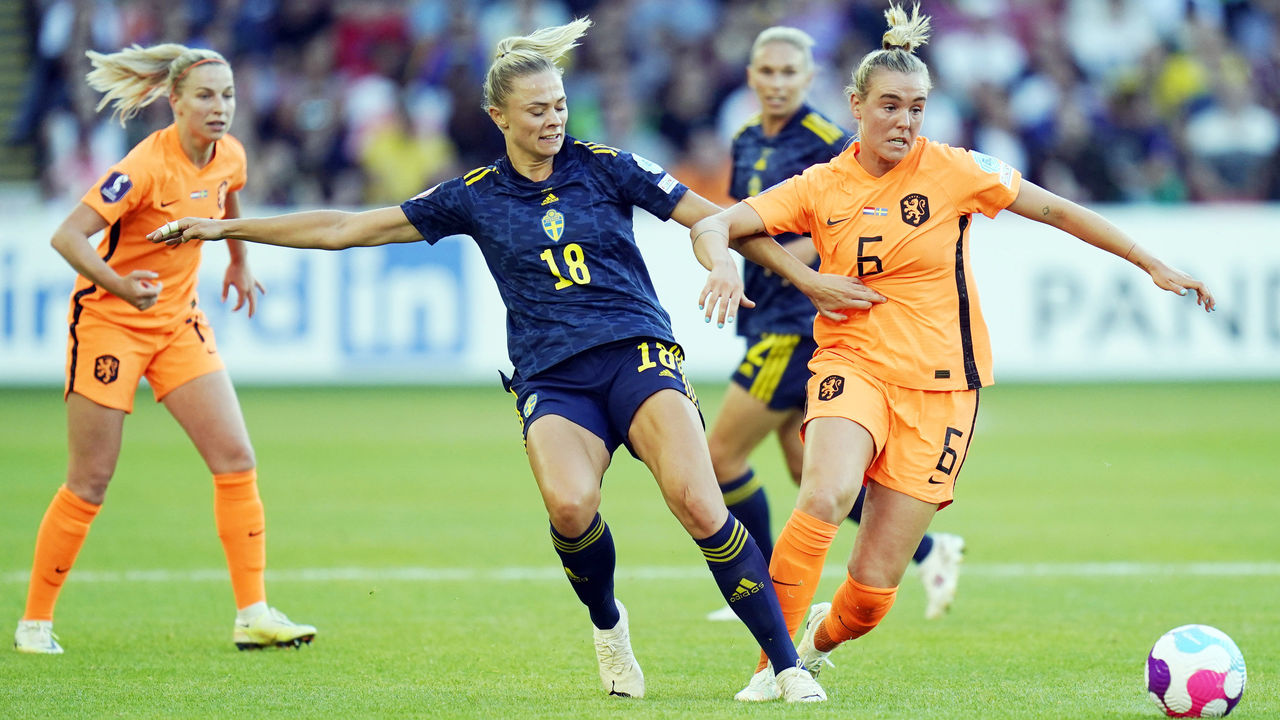
Lopopolo: Sweden. Anything less than a World Cup will come as a disappointment. The national team has already exhausted the bridesmaid narrative, finishing as runner-up at the Tokyo Olympics after a third-place showing at the 2019 World Cup. Though they have considerable experience – veterans Caroline Seger, Kosovare Asllani, and Stina Blackstenius have 491 international appearances between them – pre-tournament injuries to Seger, Asllani, and Fridolina Rolfo threaten to slow the Swedes down. Sweden has a tricky assignment as it is, with the United States or the Netherlands potentially standing in the way in the round of 16.
Nesci: Netherlands. Andries Jonker has reinvigorated the Dutch since he was appointed manager last year, and with the likes of Jill Roord and Lieke Martens, there’s still plenty of star quality on the roster. But we simply cannot overlook Vivianne Miedema’s absence. There’s also the not-so-small matter of the draw, which will see the Dutch meet the powerhouse Americans in a rematch of the 2019 final – but now it’ll come in the opening round. Finish second in Group E, as nearly everyone expects, and a last-16 meeting with Sweden likely awaits. The cards are stacked against the 2019 finalist.
Golden Boot winner
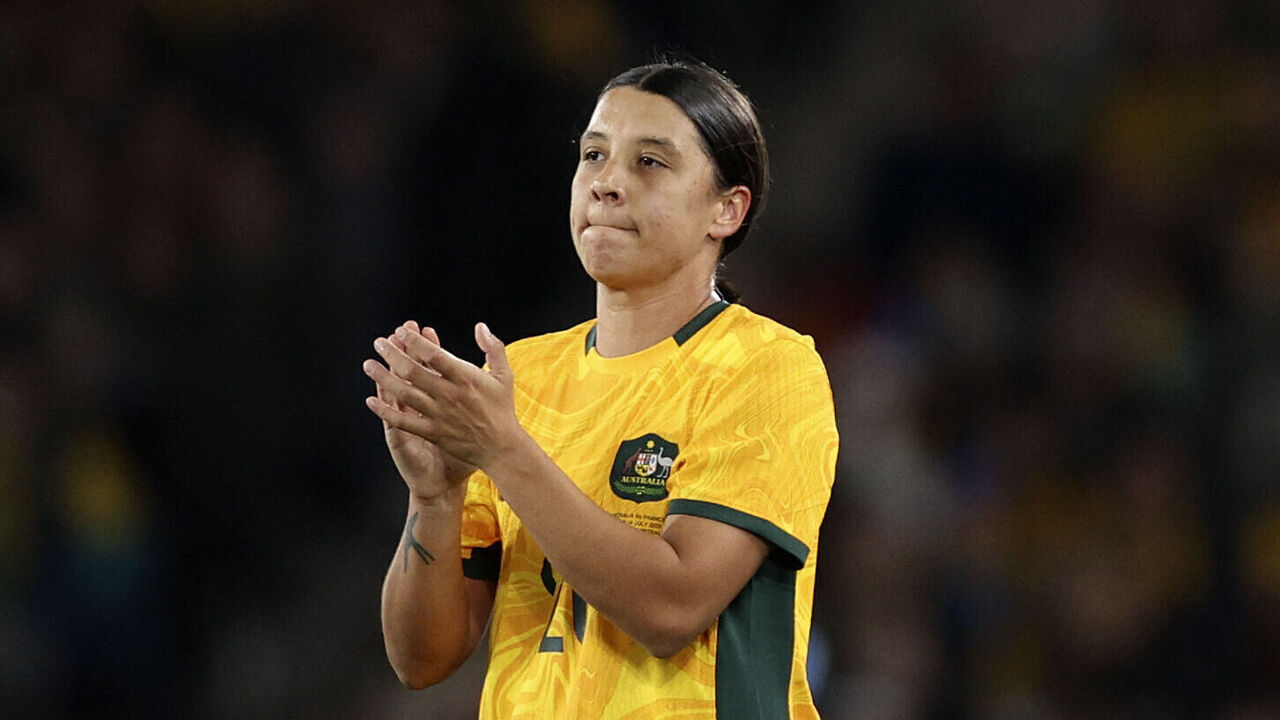
Lopopolo: Sam Kerr. Kerr has a track record of scoring big goals. She netted five at the 2019 Women’s World Cup, finishing one behind Golden Boot winner Megan Rapinoe, and led all players at the 2022 Asia Cup with seven. As Australia’s most prolific scorer – male or female – Kerr will have to play her best football to propel her team past the quarterfinal stage for the first time. She’ll also feel the warmth of the crowd as the Aussies cheer her on, as all three of Australia’s group-stage matches will take place on home soil.
Nesci: Rachel Daly. With Beth Mead injured, Daly will carry more of England’s scoring load. Coming off a WSL campaign in which she tied the league record for goals in a season (22), the Aston Villa forward is more than capable. England’s opener against Haiti is a prime opportunity for Daly to fill the net. She’ll also benefit from a deep tournament run. Don’t be fooled by Daly’s modest international stats, either: the veteran has played a variety of positions for England over the years, but should thrive as the primary threat up front this summer. Alex Morgan and Sophia Smith are good shouts, too, but if they split the difference for the U.S., Daly can collect the hardware.
Tournament final and World Cup champion
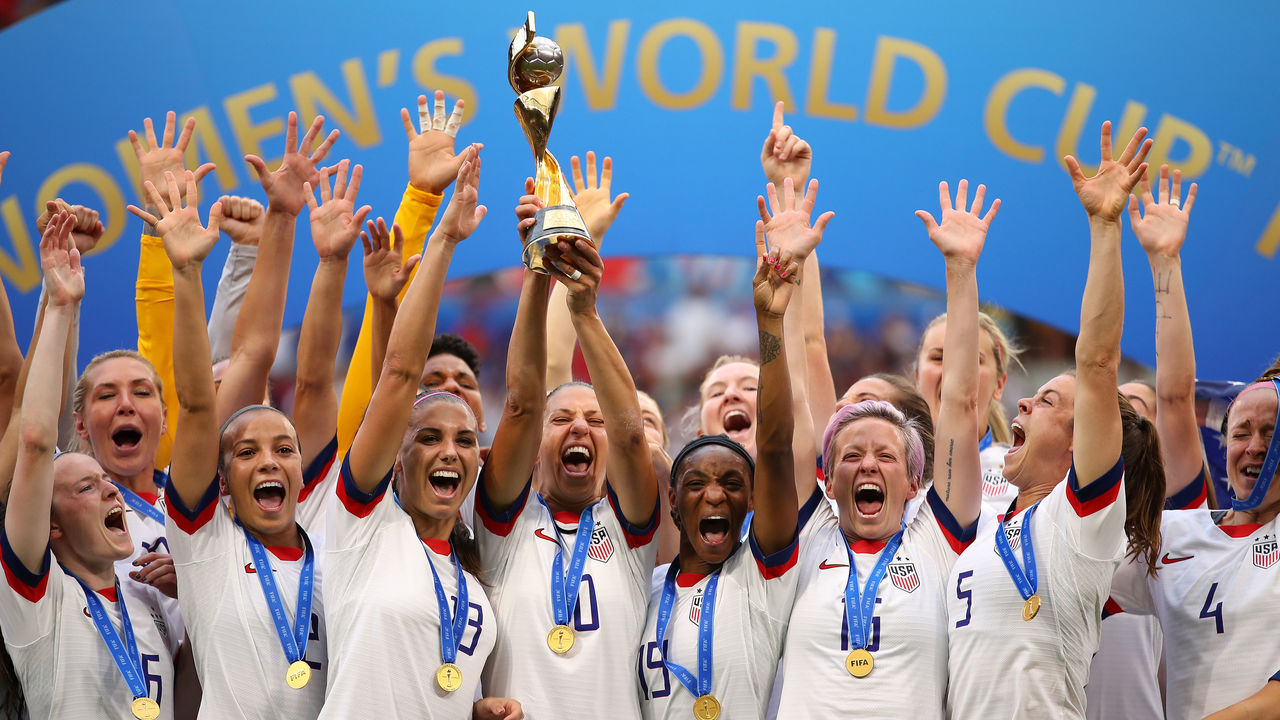
Lopopolo: Germany over the United States. After beating Sweden, Spain, and Italy in the knockout stage, the Americans will trip over the final hurdle and lose their bid to become the first team to win three consecutive World Cups. Germany will avenge its Euro 2022 final defeat to England when the two sides meet in the quarterfinals. German midfielder Lena Oberdorf will shut down the U.S., and Alexandra Popp, Germany’s veteran striker, will bag a brace in the 2-0 victory.
Nesci: United States over England. The reigning title holder, seeking an unprecedented third consecutive World Cup triumph, will meet – and beat – the current European champion in a final for the ages. Injuries have hit the two favorites hard in the tournament’s buildup, but the superior depth of Vlatko Andonovski’s team makes the U.S. better equipped to weather the absences. England has a title-winning pedigree after last year’s Euros but, on this stage, there’s no greater task than beating the United States. Until someone actually pulls it off, I’m not picking against the Americans.

Breaking down thrilling EPL title race with 10 games left

Euro 2024 playoffs: Miraculous Ukraine comeback, big result for Wales

Managerial merry-go-round: Predicting hires for marquee jobs

The Champions League's best XI so far

35 stars who will define the summer transfer window

Ajax show Juventus that winning requires more than individual quality
Trending
-
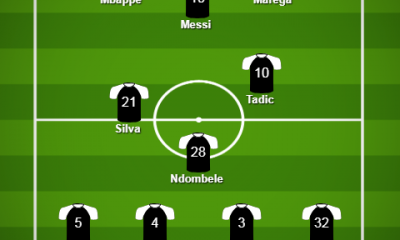
 Champions League5 years ago
Champions League5 years agoThe Champions League's best XI so far
-
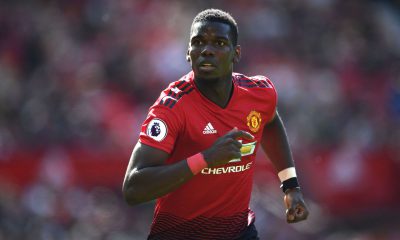
 Serie A5 years ago
Serie A5 years ago35 stars who will define the summer transfer window
-

 Serie A5 years ago
Serie A5 years agoAjax show Juventus that winning requires more than individual quality
-

 Uncategorized3 years ago
Uncategorized3 years agoIFFHS publishes the list of top scorers in football history – Romario first, Ronaldo third
-
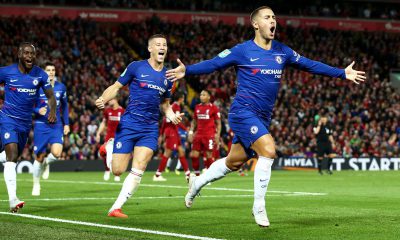
 Premier League5 years ago
Premier League5 years agoTransfer grades: Assessing Hazard’s move to Real Madrid
-
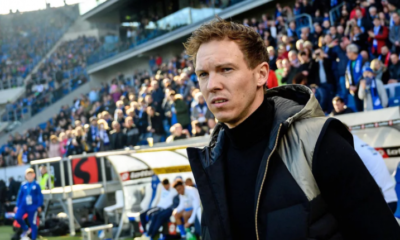
 Sports5 years ago
Sports5 years agoReady Newest Trainer in Bundesliga History, retire SOLSKYER.
-
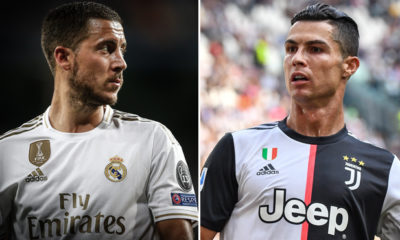
 Sports5 years ago
Sports5 years agoWenger: Hazard can’t replace Ronaldo.
-

 Sports5 years ago
Sports5 years agoMastur Talent Returns: In Milan I was a chance to make money, penalized me for growing up as a footballer.

